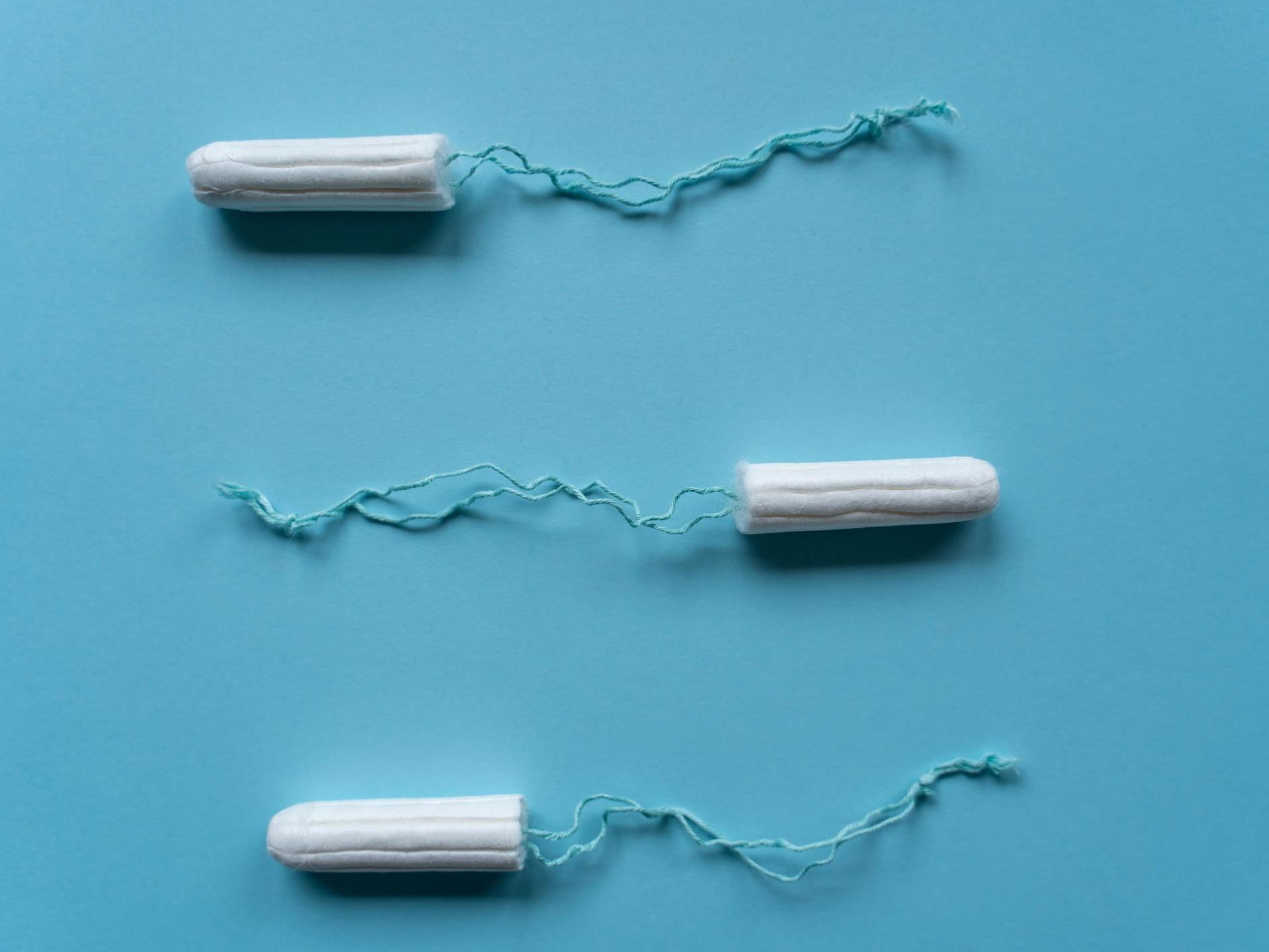Period products likely to become ‘free across the UK as Scotland set to pave way’
‘If you come on your period and don’t have a tampon or pad, it is not just that moment of panic, it’s the constant shame of leaking,’ campaigner tells The Independent

Your support helps us to tell the story
From reproductive rights to climate change to Big Tech, The Independent is on the ground when the story is developing. Whether it's investigating the financials of Elon Musk's pro-Trump PAC or producing our latest documentary, 'The A Word', which shines a light on the American women fighting for reproductive rights, we know how important it is to parse out the facts from the messaging.
At such a critical moment in US history, we need reporters on the ground. Your donation allows us to keep sending journalists to speak to both sides of the story.
The Independent is trusted by Americans across the entire political spectrum. And unlike many other quality news outlets, we choose not to lock Americans out of our reporting and analysis with paywalls. We believe quality journalism should be available to everyone, paid for by those who can afford it.
Your support makes all the difference.Period products are likely to become free across the UK as Scotland inches steadily closer to introducing trailblazing legislation to tackle period poverty, campaigners said.
Scotland is set to become the first country in the world to provide free tampons and sanitary pads after the Period Products Bill, which passed its first legislative stage last month and has cross-party support, looks likely to become law.
The legislation, first put forward in 2017 by Labour’s Monica Lennon in a bid to tackle period poverty, gained support from every party in the Scottish parliament – with the Scottish government announcing it plans to lend its support to the bill.
Gabby Edlin, a campaigner working closely with the UK government on how to improve access to period products, told The Independent that the Scottish measures are likely to eventually be rolled out across the UK.
She said: “People understand the need. It is not just a flash in the pan problem. People need these products forever. Scotland is leading the way in how we need to be behaving towards periods. We should be following.
“Period products are essential products. Toilet paper and soap are freely accessible but because of sexism, period products are not. When people are not able to access them, their lives are severely impacted. If you come on your period and don’t have a tampon or pad, it is not just that moment of panic, it’s the constant shame of leaking.”
Ms Edlin, who is the founder of the charitable project Bloody Good Period, said she has talked to a woman who was forced to grab a tablecloth hanging on a stranger’s washing line to cope with her period due to not being able to afford products.
The campaigner argued there is a massive stigma around periods due to women’s bodies being deemed dirty and unhygienic.
“If you go into a restaurant and there is no toilet paper, you go and tell the waiter,” she added. “It needs to be as casual as that to ask for period products.”
Period poverty is a widespread issue in the UK – with 49 per cent of girls having missed a day of school due to periods and one in 10 women aged 14 to 21 not able to afford period products.
Nicoletta Primo, of Girlguiding Scotland, said there has been “great support” for the bill in Scotland and that it will not only provide economic benefits, but also help to overhaul stigma around periods.
“We are really pleased for this to be so high on the political agenda,” Ms Primo said. “Scotland would be a world leader. We would be really hopeful this would be inspirational for other countries, including the rest of the UK. According to the research we have done, 91 per cent agree free products would help girls and young women participate in after-school activities.”
Ms Primo said the bill sends a signal that issues which affect women and young girls are being taken seriously, and marks a key step towards creating a more gender-equal society.
Her comments come as Kate Forbes, the Scottish finance secretary, argued it is “unacceptable” that women have to fork out so much for period products. Ms Forbes lent her backing to the legislation.
Amika George, who successfully campaigned for the government to provide free period products in schools and sixth form colleges, said she hopes the rest of the UK follows Scotland’s lead and makes period products free.
“We are starting to see a shift in the way periods are being perceived,” said the 20-year-old, who launched the Free Periods campaign in 2017. “If it’s not prioritised here by government, we will certainly be looking into it.”
She added: “It’s a human rights issue. Universal access is important because it will ensure that the needs of all genders are met in public places. There is such abject poverty in the UK, and wherever there are difficult choices to be made in families of how money should be spent, period products fall to the bottom of the list of priorities. Where it affects young children who end up missing school because they can’t afford to buy them, we know that the consequences of this are long lasting and can affect the entire trajectory of their lives.
“While campaigning, and having had a number of conversations with school nurses, we know that girls have been really reluctant to admit they can’t afford pads or tampons. That’s a direct result of the stigma around periods, combined with the stigma around poverty. Girls would be reluctant to even admit to their friends that they can’t afford period products, and that’s a huge shame.”
Join our commenting forum
Join thought-provoking conversations, follow other Independent readers and see their replies
Comments